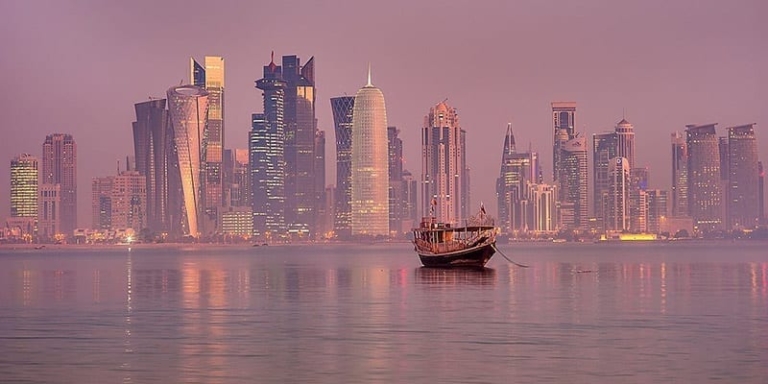
Middle Eastern media outlets, particularly in the Arabian Gulf, have been abuzz lately with news reports of an imminent political resolution to the two-and-a-half-year-old GCC crisis, one leading to a long-awaited reconciliation between feuding members of the Gulf Cooperation Council (GCC). Although the reports have been mostly unsubstantiated, they did assume a more serious tone on December 2 as the prime minister of Kuwait, Sheikh Sabah Khaled Al Sabah, revealed that the reconciliation will indeed take place at the GCC summit scheduled for December 10 in Riyadh. Kuwait has been a trustworthy source on this matter due to its neutrality and role as mediator role since the inception of this dilemma.
As it is widely known, the crisis in question erupted on June 5, 2017 as four Arab countries—Saudi Arabia, the United Arab Emirates, Bahrain, and Egypt—imposed an air, land, and sea blockade against the State of Qatar. Prior to severing their diplomatic relations with Doha, the blockading nations had officially accused the Qatari government of supporting terrorism, maintaining close relations with Iran, and meddling in their own internal affairs. The Qatari government summarily rejected these charges. For example, in his address at Arab Center Washington DC on June 29, 2017, Qatari Foreign Minister Mohammed bin Abdulrahman Al Thani expressed his country’s readiness to negotiate any legitimate grievances raised by its neighbors so long as they did not compromise Qatar’s sovereignty.
Despite this forthcoming offer by Qatar, the GCC crisis quickly escalated, creating concerns among many observers that the list of demands issued by Saudi Arabia and its blockading partners was indeed non-negotiable. Cognizant of the significant threat presented by the blockade to the cohesion of the GCC and its negative impact on US interests in the region, then US Secretary of State Rex Tillerson urged Gulf allies to tone down their rhetoric and work together to resolve their differences. However, Tillerson, who had advised the blockading countries to ensure that their demands are “reasonable and actionable,” admitted publicly that some of these demands “will be very difficult for Qatar to meet.”
The current wave of rumors and innuendos regarding potential reconciliation emanated from a strange mix of developments ranging from sports events to recent visits by Qatari officials to Saudi Arabia. Media outlets were quick to link Saudi and Emirati participation in the Arabian Gulf Cup, held in Doha, with behind-the-scenes diplomatic efforts to mend political ties between the feuding neighbors. An unnamed Saudi official visiting Washington was quoted by Bloomberg News as confirming that “Qatar has also started taking steps to repair relations with its neighbors.” In a more serious vein, media outlets also referred to the participation of Qatari Prime Minister Sheikh Abdullah bin Nasser bin Khalifa Al Thani in the emergency GCC Summit held in Mecca last May. In addition, there was broader media coverage of another important but unconfirmed visit to Riyadh by Qatari foreign minister Al Thani, where he allegedly met with senior Saudi officials to specifically discuss ways “to mend the long-festering feud” between the two countries, as reported by the Wall Street Journal in late November.
Assuming that all these gestures—from soccer diplomacy to conventional diplomacy—begin to bear fruit on December 10, can GCC members simply reconcile by letting bygones be bygones and returning to the status quo ante of June 4, 2017? What challenges will GCC members face should they indeed come to that conclusion? Not surprisingly, the challenges hindering a quick and total resolution to the GCC crisis are many and will be difficult to address or alleviate in the short term.
Dr. Majid M. Al-Ansari, a professor of political sociology at Qatar University and a well-versed commentator on Qatari and Gulf affairs, has been quite vocal about the challenges presented1 by any future reconciliation. First and foremost among these, according to Al-Ansari, are the guarantees needed, particularly on the Qatari side, to prevent such a crisis from re-emerging in the future. Second, the parties would have to overcome the lack of trust generated by the long-standing crisis whether in the economic, political, or security realms. In other words, this trust deficit is not going to be restored automatically just because a political decision to effect reconciliation is reached by the leadership in these countries. And finally, Al-Ansari points to the heavy price that might be required from Qatar to roll back some of the gains achieved by the Qatari people in terms of its newly asserted independence, self-sufficiency, and sovereign decision making since the crisis began.
These three issues will prove to be serious challenges if the GCC summit chooses to tackle this thorny issue in Riyadh. The list is not limited to these three hurdles, however. Another equally formidable task pertains to how to overcome the abnormally and deeply agitated public opinion in these countries, which has never been mobilized and unleashed with the same intensity and maliciousness witnessed over the past two-and-a-half years. The proliferation of social media trolls for hire and twitter armies in the Gulf, coupled with their unprecedented manipulation by government agents as a political weapon to undermine the enemy, has been a relatively new phenomenon in Arab arsenals whose consequences will continue to be felt if reconciliation were pursued. The question remains: will the conflicting parties be able to put the genie back in the bottle should they decide to reconcile?
1 Source is in Arabic.
* Photo Credit: Alex Sergeev

